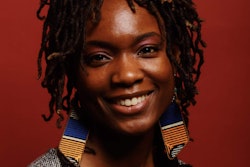“People open the doors and they believe by opening the door we are getting in, and yes, we are getting in. But in order to get into a house, you need an invitation, and you need the owner of the house to be there to welcome you. Otherwise, you feel like a robber or a burglar.” — Hispanic Student
“So often your full professors [and] your associate professors are predominantly White. And as you go through your program you might not question it because it becomes just a normal thing. … And even at the assistant level they are primarily White, and you go, “What’s up with that?” Eventually, you question that and it has an effect on your academic self-esteem, your self-worth.” — African-American Student
These are the voices of under-represented doctoral students who participated in a recent research study regarding the cultural and institutional issues they face. Fifteen minority doctoral students were selected to share their experiences. They represented three types of universities in different states: a predominantly White institution, a historically Black university and a racially mixed campus.
Before findings are summarized, it is important to offer some context. Historically, obtaining a doctoral degree has been an important pipeline for producing leaders in a variety of disciplines. The good news is that African-American, Hispanic/Latino, and American Indian students are entering doctoral programs at higher percentages than any previous time in history. The bad news is that, in 2003, these three under-represented groups combined receive less than 10 percent of all doctoral degrees conferred, according to the National Center for Education Statistics. More than half of those who enroll in a doctoral program leave before graduation.
Previous research has identified a number of barriers facing doctoral students, but few current studies focus specifically on the challenges under-represented students face. This study focused on documenting those voices, with all findings available in a larger report. This brief article offers just a snapshot.
Data revealed that these minority doctoral students encounter a variety of potential barriers, including family and first generational issues, inadequate educational preparation, unclear institutional policies and procedures and “chilly” departmental climates. Overwhelmingly, issues associated with race/ethnicity permeated every cultural and institutional barrier identified in this study.
Many of the current practices of doctoral-granting institutions were established more than 350 years ago (when slavery was a practiced institution and only wealthy men walked the halls of higher education). Although students who now pursue doctoral degrees include many minorities and women, accepted norms are still based on long-standing traditions. These include the secrets and socialization demands of the ivory tower. It’s unwritten expectations and hurdles are meant to allow only a select few into the academy of intellectuals.
Within this tower, under-represented students perceive little that reflects their own cultures in regards to faculty, curriculum and research topic options. This was the case even within the historically Black university in our sample. Consequently, what some may perceive as academic barriers transcend into race/ethnic issues. Acculturation occurs which affects students’ identities, learning styles and confidence levels. Some survive to graduation. Many do not.
“There are really quite a lot of issues that come up. I never expected it was going to be so cruel inside this place, which has really set me back.” — African-American Student
“I think, gosh there has been a terrible disappointment. I came to the number one program in the nation … and I still can’t determine what makes this program number one for me as a minority student. When I ask other minorities in my section they say it doesn’t feel any different either.” — Hispanic Student
“I don’t want to have to change to fit in. Somehow the system needs to make allowances for us to be [included]. Do I see it happening? No, not really.” — American Indian Student
Is anyone listening? This study suggests that college leaders have failed to build bridges between under-represented students’ sociological and cultural factors and their doctoral programs. Just accepting more minority candidates is not the solution; working to understand cultural conflicts, remove institutional barriers and increase the quality of diversity initiatives are essential. Until such time, few Ph.D’s of color will be available for leadership positions in our increasingly multicultural and complex world.
Dr. Louann Bierlein Palmer is an associate professor, in the department of educational leadership, research and technology at Western Michigan University. Dr. Nancy Greer-Williams is a program director for Howard University’s science, engineering & mathematics program.
|
Reader comments on this story: |
|
There are currently 4 reader comments on this story: |
|
“best practices” -Christopher Newman, Los Angeles, CA |
|
“women doctoral candidates of color” SisterMentors has helped 25 women of color to get their doctorate since it was founded in September 1997. Check out this successful program! -Shireen K. Lewis, Ph.D. |
|
“a network of academic support and mentoring” Washington, DC |
|
“relying on God and yourself to get through” To me, when I hear of fellow minorities allowing the ignorance of others to prevent them from achieving a dream, that flies in the face of so many minorities who had to deal with much greater hostile environmental settings; however, they still made it. There were African Americans who faced slavery, lynching, and other physical, mental, and emotional dangers that make our problems seem like child’s play…but they made up in their mind that they were going to achieve their dreams and make a way for their people to do the same. Becoming a barrier-breaker can be a lonely job at times. Since there are still so few doctoral students of color, these students will become barrier-breakers, if they stay in the game. They will become the people who can make a way for other minorities. To do that, you will sometimes have to be the lone wolf. You will be in an environment where you may be the only minority and may receive a less than warm welcome, but that is the price you have to pay when breaking into fields that have very few minorities. Let’s be the leaders who will sacrifice some discomfort, so that we can open up the academic road for others to come. No leader becomes a leader on a smooth road, especially a minority leader. Reidsville, NC |
© Copyright 2005 by DiverseEducation.com















